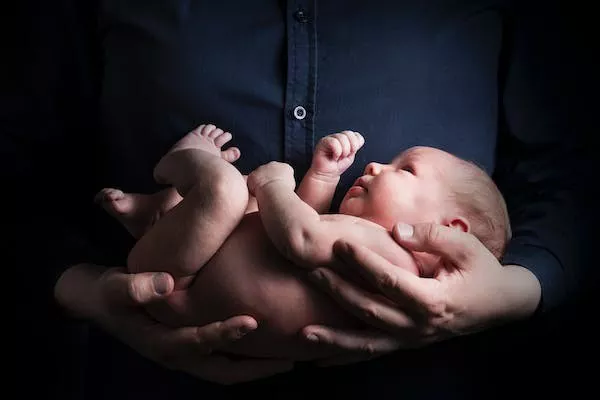Welcoming a newborn into the world is an incredibly joyous occasion for parents and their families. However, it’s crucial to strike a balance between sharing the excitement with loved ones and ensuring the well-being and health of the newborn. Determining the right time for visitors to meet your baby can be a challenging decision. This article aims to provide parents with valuable insights into when newborns should have visitors. By considering various factors, including the baby’s health, immune system, and bonding with parents, you can create a safe and memorable environment for both the newborn and your loved ones.
The First Few Days: Rest and Recovery
The first few days after childbirth are crucial for the mother and baby to rest and recover. This period is often referred to as the “babymoon,” during which the family can focus on establishing breastfeeding, bonding, and adjusting to the new routine. Limiting visitors during this time allows parents to prioritize the needs of the baby while also getting much-needed rest. Rest and recovery are essential for both parents and the newborn, helping to build strength and resilience in the early stages of life.
Immune System Development: A Delicate Stage
Newborns have an underdeveloped immune system, making them more susceptible to infections and illnesses. During the first few weeks, their immune system is gradually developing, making it crucial to protect them from potential sources of infection. Exposure to large groups or individuals who may carry contagious diseases can pose a significant risk. Limiting visitors during this sensitive stage helps safeguard the baby’s health and minimizes the chances of exposure to harmful germs.
Vaccination Status: A Key Consideration
Vaccination is an essential preventive measure for protecting newborns from various diseases. Before allowing visitors to meet your newborn, it’s important to ensure that they are up-to-date with their vaccinations, especially for diseases such as whooping cough (pertussis) and influenza (flu). By setting this requirement, parents can significantly reduce the risk of their baby contracting potentially dangerous infections. Communicate this expectation to potential visitors and encourage them to prioritize their vaccinations before visiting.
Bonding Time: Prioritizing Family
The early days and weeks after birth are crucial for parents and the newborn to establish a strong bond. Encouraging uninterrupted bonding time helps promote a sense of security, trust, and emotional well-being for both the baby and the parents. Limiting visitors during this period can minimize distractions and enable parents to focus on nurturing their newborn’s needs. Prioritizing family bonding time in the early stages contributes to a healthier parent-child relationship and supports the overall development of the baby.
Seasonal Considerations: Flu and Cold Seasons
The time of year can also influence the decision of when to allow visitors. During the flu and cold seasons, the risk of infectious diseases increases significantly. It’s advisable to be particularly cautious during these periods and limit the number of visitors, especially if they have been exposed to someone with a contagious illness. Parents should communicate the importance of hand hygiene and general health precautions to potential visitors, promoting a safe environment for the newborn.
Preparing for Visitors: Establishing Guidelines
Once you feel ready to welcome visitors, it’s important to establish clear guidelines to ensure the safety and well-being of your newborn. Communicate your expectations regarding hand hygiene, illness symptoms, and vaccination status to potential visitors. Encourage anyone who is feeling unwell or experiencing symptoms of illness to postpone their visit. Additionally, limit the number of visitors at any given time to maintain a calm and comfortable environment for the baby.
Special Considerations: Preterm Birth or Health Issues
In the case of preterm birth or when the newborn has specific health issues, additional precautions may be necessary. Premature babies often have weaker immune systems and are more susceptible to infections. In such situations, it is crucial to consult with your healthcare provider to determine the appropriate time and guidelines for visitors. Healthcare professionals can provide tailored advice based on the specific needs and condition of your baby.
Keywords: special considerations, preterm birth, health issues, immune systems, infections, healthcare provider, guidelines
Conclusion
Deciding when newborns should have visitors requires thoughtful consideration of various factors, including the baby’s health, immune system development, and the bonding period with parents. Prioritizing the well-being and safety of the baby is crucial during the early stages of life. By establishing clear guidelines, ensuring vaccination status, and promoting a safe environment, parents can create a memorable and secure space for their newborn and loved ones to connect and celebrate this joyous occasion.


